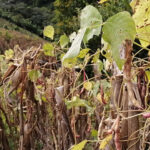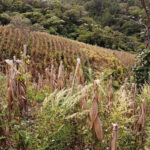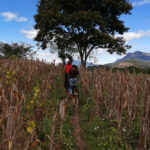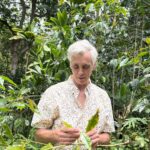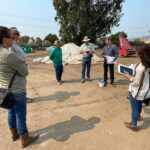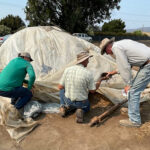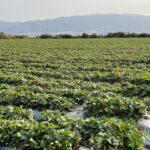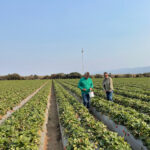OFRF and FFAR Announce On-Farm Organic Research Grant Addressing Climate Resilience for Coffee Producers
FOR IMMEDIATE RELEASE
(June 29, 2022) – The Organic Farming Research Foundation (OFRF) and the Foundation for Food & Agriculture Research (FFAR) are pleased to announce its second award for the 2021/22 OFRF organic research grant cycle. Alejandra Guzman Luna, affiliated with Universidad Veracruzana and in collaboration with the Agroecology and Livelihoods Collaborative at the University of Vermont, was awarded $19,970 to evaluate organic farming practices for staple crops in Chiapas, Mexico.
Mexico’s highland region of Sierra Madre del Sur, known for its coffee production, has been severely impacted by the climate crisis. The local area experiences food insecurity and total profitability for smallholder coffee producers remains volatile. This project takes a participatory research and demonstration approach to develop and integrate organic staple crop production into more sustainable organic coffee agro-ecosystems.
“Diversity and mutual collaborations are always the best way to approach agriculture and research,” said Guzman Luna, principal investigator for the project. “I am thankful to OFRF for founding our Participatory Action Research designed and carried out with smallholder coffee producers to move staple crops into organic practices in the south of Mexico.”
The project will address the perceived lack of viable organic alternatives in growing staple crops such as corn and bean. The research team will conduct a participatory diagnosis of the challenges of growing staple crops organically; co-design and establish four experimental and educational plots; and systematize the results and widely disseminate them to local ag leaders and communities, other smallholder coffee cooperatives in the region, actors in the coffee value chain, scholars, and general public.
“Organic systems that emphasize soil health help farmers and ranchers increase resilience to the impacts of climate change,” said OFRF’s Executive Director Brise Tencer. “We are pleased to invest in farmer/researcher collaborations that support science-based solutions addressing the most pressing challenges facing organic farmers and ranchers today.”
This year’s program prioritized farmers, early career researchers and Black, Indigenous and People of Color (BIPOC) applicants. Six projects focused on climate mitigation and building on-farm resilience have been awarded a grand total of $119,817 in funding. The 2021/22 cycle was made possible by a $66,000 grant from FFAR and matching funds from OFRF and its research partners.
“FFAR is thrilled to support six organic research grants through this collaboration with the Organic Farming Research Foundation,” said Dr. LaKisha Odom, FFAR scientific program director. “These research grants are funding audacious soil management techniques that enhance crop productivity, improve environmental health and support increased farmer resiliency to severe weather events.”
To date, OFRF has invested over $3 million in 361 grants across North America to advance scientific knowledge and improve the ecological sustainability and economic prosperity of organic farming systems. All OFRF-funded research must involve farmers or ranchers in project design and implementation, take place on certified organic land, and include strong education and outreach components. All research results are freely available in OFRF’s online database.
(Photos: Traditional and organic milpa of Doña Amalia, a member of the coffee cooperative.)
###
Foundation for Food & Agriculture Research
The Foundation for Food & Agriculture Research (FFAR) builds public-private partnerships to fund bold research addressing big food and agriculture challenges. FFAR was established in the 2014 Farm Bill to increase public agriculture research investments, fill knowledge gaps and complement USDA’s research agenda. FFAR’s model matches federal funding from Congress with private funding, delivering a powerful return on taxpayer investment. Through collaboration and partnerships, FFAR advances actionable science benefiting farmers, consumers and the environment.
Organic Farming Research Foundation
The Organic Farming Research Foundation (OFRF) is a non-profit foundation that works to foster the improvement and widespread adoption of organic farming systems. OFRF cultivates organic research, education, and federal policies that bring more farmers and acreage into organic production. Project results are shared freely at ofrf.org. OFRF also provides free access to all of its educational materials and resources.



